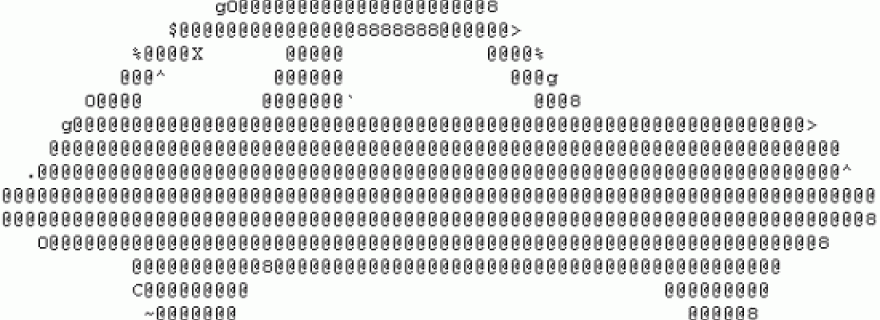Function Creep
After last years revelations of the NSA spying activities, hackers often despair over the lack of public interest in online privacy. An anthropological focus on the specific context of such activism may help explain this.

In december 2013 I heard the revelations about the huge scope of surveillance activities carried out by the American National Security Agency (NSA) while I was surrounded by people whose outrage over this was both obvious and expected. We got the message from Jacob Appelbaum, the American journalist and free speech advocate who is in close touch with Edward Snowden, former contractor of the NSA. Appelbaum presented Snowden's evidence addressing an audience of several thousand people. They were gathered in the largest hall of a venue in Hamburg that housed the 30th edition of the Chaos Communication Congress (30C3). Held every year since 1984 between Christmas and the New Year, C3 is known as a hacker conference, attracting people who are fascinated by information technology and want to take part in its shaping. Among the attendees are computer programmers and engineers, digital artists, entrepreneurs, researchers of digital culture, the occasional politician, and free-speech advocates.
Snowden's revelations show the dangers of a society that generally accepts the widespread use of digital tracking technologies for ever more processes of human communication, distribution and logistics, administration, registration, and process control. The hacker outrage over NSA spying is informed by their own vision of how communication technologies should, instead, be used for creative, useful, empowering purposes. As one presenter at C3 envisioned, digital technologies with the power to profile, track, and store online communication can be used for the "self-tracking" of people's level of fatigue, stress, distraction, or amount of exercise. As such, they can increase their awareness of, and ability to improve, mental fitness and cognitive well-being. From this perspective, the NSA use of these very same capacities for spying purposes is a prime example of technological function creep.

Hope and Despair
When technology designers and others who believe in the empowering potential of digital technology are confronted with the downsides of a digital society, they often find answers yet again in the domain of design: they work hard to put the right laws, protocols, and network designs in place and advocate the correct user awareness, so as to prevent technology from creeping into functions it has not been designed for.
Hence, after only a brief moment of despair and shock after Snowden’s revelations, hackers, activists, and public and private organizations all over the world have set themselves the task to “fix the Internet.” As part of this “fixing” people are educating themselves and others in techniques for decentralized and anonymized internet use.
Often, these people regularly despair of the lack of public interest in their cause. It is remarked that even in this "post-Snowden era" the general public doesn't seem to care about privacy, updating their computer skills, or lobbying for better regulations and laws; that there is a big gap between these internet fixers and society at large.
Different pictures
Yet, the hackers who say this don't always realize that people's political attitude towards technology strongly depends on social context and that their own activism depends on a very specific type of social environment.
Hacker activism, for instance, is generally informed by a common acceptance of a specific origin story of the internet. This understanding, associating the internet with democracy, freedom and creativity, may be informed by personal, emotionally charged experiences with the role digital technologies can play in political activism or by a hands-on, code-level experience with the unlimited, creative uses of information technologies. From this perspective, it feels as a perverse and unjust case of function creep that an organization like the NSA should use these very same digital technologies to target, profile, and censor people and that commercial corporations seek to hide parts of code and have secret infrastructural arrangements in order to make profit.

Yet, there are many people outside of these scenes whose first encounter with digital technology is not associated with freedom and creative self-expression, but with an inherently unequal relationship between themselves and larger institutions. For instance when they have lost their - non-digital - job and are required to learn digital skills in order to keep their social welfare benefits.
Hacker activism also depends on the presence of articulate people who use presentations, blog posts, websites, twitter, and mailing lists to further render self-evident their standpoint that it is unwise to leave technological decision-making into the hands of large corporations and controlling nation states. Yet, many computer users who are not part of this environment may associate internet use with freedom and connecting with others, but they enjoy this while trusting states and corporations to deliver these features to them.
Also, the hacker belief that things can be changed and fixed is strongly informed by the ready availability of technical know-how, the possibility to spend a lot of time tinkering with and thinking about technology, and on maintaining connections with sympathizing journalists, politicians and legal representatives. Yet, people outside of these scenes may be outraged over NSA spying but can't imagine ever having the time or networks to learn how to get online in alternative ways. They are already struggling to keep all their devices up to date, and are motivated to do this mainly because they want to function well in their day-to-day lives - to stay in touch with their children’s teachers, to organize their work, and to maintain social contacts.
Healthy Scepticism
In order to get a fuller picture of how the current information society is lived, how it shapes political viewpoints and distributes power, the full specter of everyday digital experiences needs to be taken seriously. In the context of the hacker lifeworld, it is possible to imagine a future society that is both fully digitized and participatory, democratic, and free. Yet, when we take the full spectre of technological experiences into account, it seems wiser to combine hacker activism with a healthy skepticism regarding the possibility of creating a digital utopia for all. Awareness of digital politics, in my view, does not compute very well with unbridled enthusiasm for a future world characterized by ubiquitous tracking, distributing and storing digital technologies.
This blog is an edited excerpt of the article Function Creep published at www.dorienzandbergen.nl.



0 Comments
Add a comment